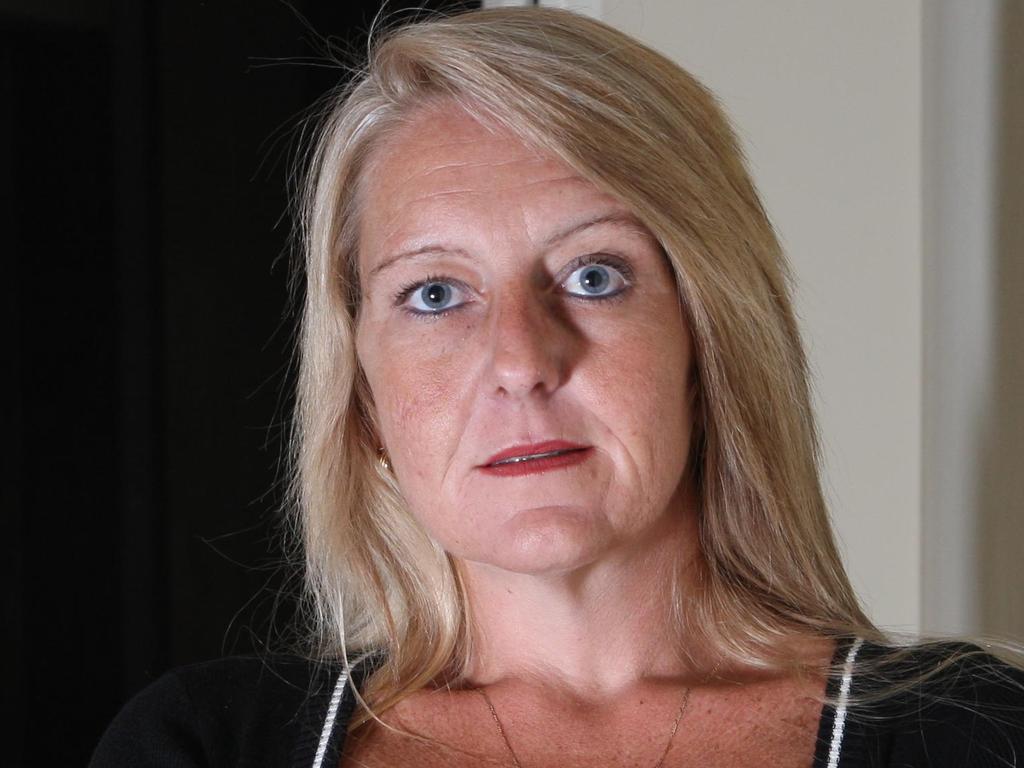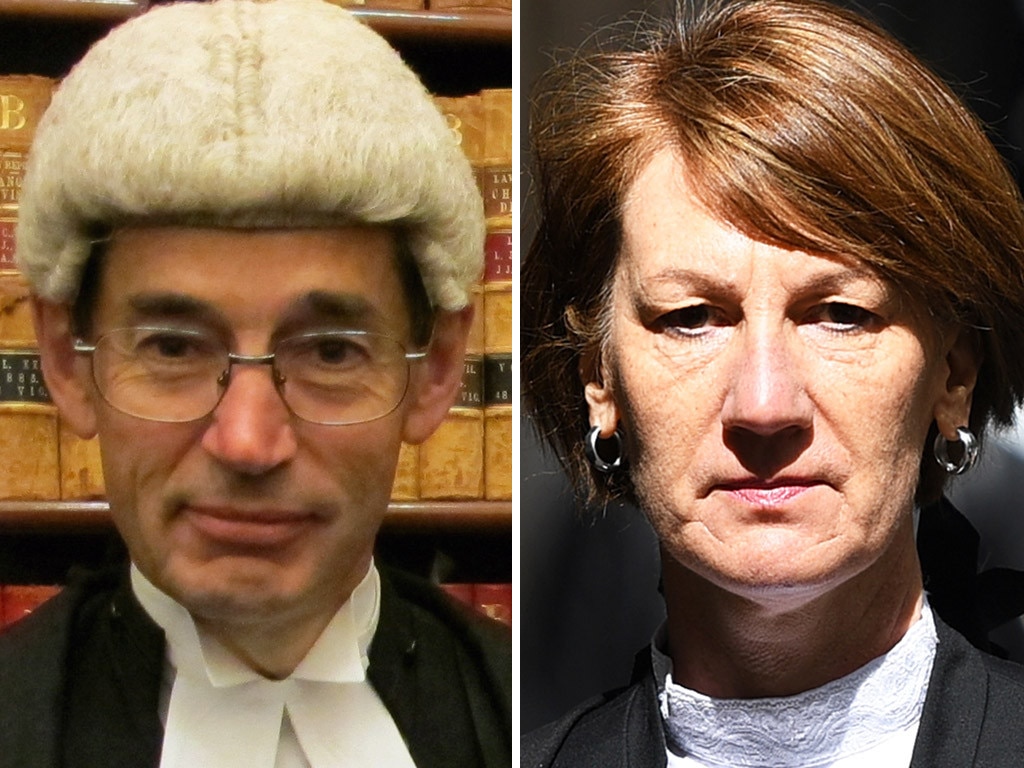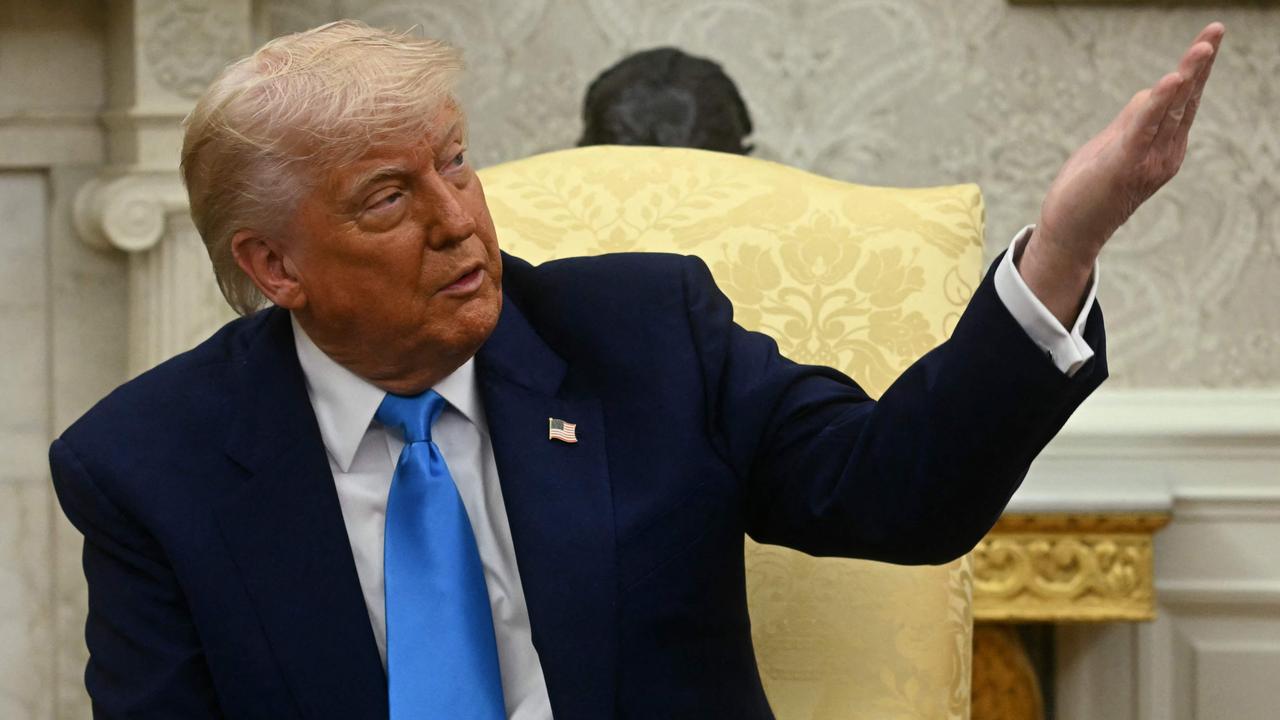Judge Geoffrey Chettle v Victorian DPP Kerri Judd: rape trial ignited judicial turf war
Judge Geoff Chettle’s condemnation of DPP Kerri Judd revealed as Victorian Court of Appeal ‘vindicates’ him in shocking rape case.
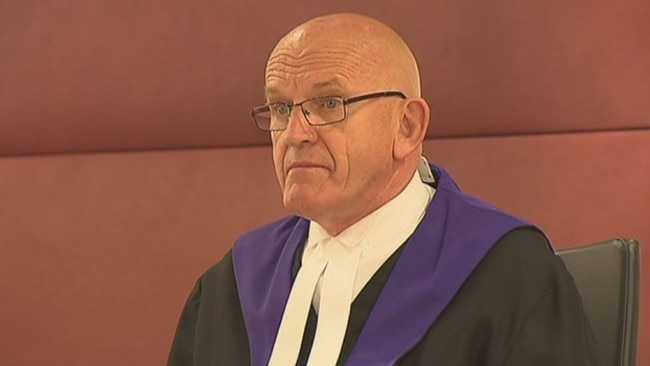
Geoff Chettle has never been one to mince his words. And the County Court judge wasn’t about to start as he presided over a preliminary hearing in the Latrobe Valley.
Victorian Director of Public Prosecutions Kerri Judd had dispatched a barrister to the Morwell courthouse to tell Chettle – a straight-talking, street-tough, hardworking veteran judge lawyers liken to a legal machine – he must stand aside from hearing the rape trial her office was prosecuting.
Chettle listened to Judd’s argument and delivered his verdict, which The Weekend Australian can now detail for the first time, based on a transcript of the hearing. This was not one of those polite “reasonable minds may differ” moments the law is known for.
“The Director of Public Prosecutions makes application for me to disqualify myself as the presiding judge in the trial,” Chettle told the court.
“This is an unfortunate application. It totally misunderstands the basis of what was occurring and represents, I think, some sort of kneejerk reaction from the director to what she sees as an intrusion on her fiefdom. Nothing is further from the truth.”
The events that set in train that clash in Morwell on February 16, 2023, unfolded more than two years earlier across the Sunday night and Monday morning of January 3 and 4, 2021 about a half-hour drive away in Drouin.
What happened in the Latrobe Valley town is too graphic to publish, except to say it involved drugs and sexual activity between a woman and two men.
Much of the sexual interaction was filmed by the men on mobile phones. The first eight films record sex between what appear to be consenting adults.
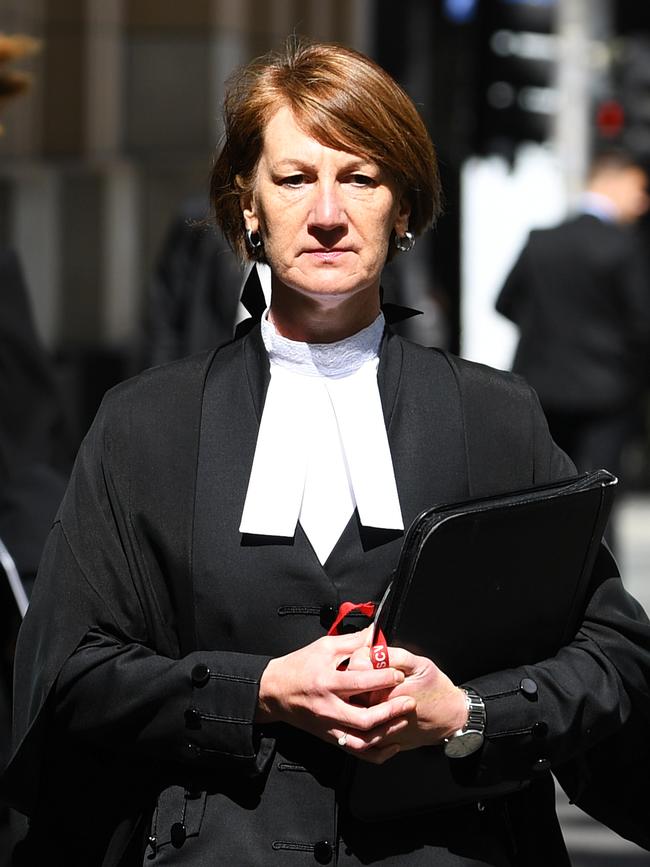
But it’s what happened in the next few minutes between the three that has reverberated from the Latrobe Valley to the heart of Melbourne’s legal system; dividing opinion in the Office Public Prosecutions, provoking the confrontation between Chettle and Judd, sending both men to jail for more than 700 days and ultimately culminating in the state’s highest court delivering a landmark ruling two weeks ago, overturning a jury’s guilty verdict and, in doing so, vindicating Chettle, who never thought the case was strong enough to proceed in the first place.
Shortly after 7.44am on the Monday morning, one of the men, aged 23, started recording the other man, aged 31, engaging in another sexual encounter with the 26-year-old woman. This film, the ninth, lasted two minutes and forty five seconds.
Police believed the ninth film was very different to the previous eight. They say the video constituted evidence of a crime by the men against the woman, who was by now affected by the drug GHB and unable to consent. The woman had lodged a complaint with police after she saw the ninth film. The men were later charged by police with multiple rape and sexual assault offences.
But before they could be prosecuted in the County Court, the Office of Public Prosecutions had to sign off on the indictment. And there was a problem.
The Weekend Australian has confirmed the Crown prosecutor charged with reviewing the brief – including the films of the sexual encounters, which constituted most of the evidence – refused.
After a considered review of the brief, the “crownie” arrived at the conclusion there was not a reasonable prospect of a successful prosecution.
But that’s not where the case against the men ended. The indictment escalated up the chain in the Office of Public Prosecutions and resulted in someone more senior signing the indictment. Sources have told The Weekend Australian that OPP prosecutor was, in fact, the boss, Kerri Judd. The wheels of this legal saga were now in motion.
By early February 2023, Chettle was presiding over a series of pre-trial hearings and applications. One of them was from the men’s lawyers, who wanted the case thrown out.
Official records of the hearings indicate Chettle was troubled by the case, in particular the prospect of a jury having to watch the graphic films. He also considered the prosecution’s case to be weak.
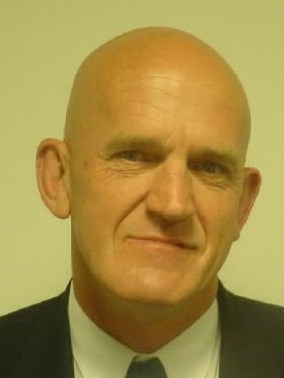
Chettle emailed prosecutors seeking assistance about the issues he identified with the case. Judd appears to have not appreciated the direct approach from the judge, and at this point her office launched the attempt to force him to recuse himself.
The transcript of the February 16 hearing reveals Chettle launched a withering blast at Judd as he dismissed the application from the top prosecutor’s barrister.
Chettle, according to the transcript, details his concerns about the Crown case against the men, which he described as “weak”, and noted that the 40 minutes of “base, gross and disturbing” recordings, which revealed the men believed the woman “was, as she had been for an hour, an enthusiastic and willing participant in sexual activity”.
Chettle raised concerns about subjecting a jury to watching the sex videos.
“So, against that background, I wanted assistance (from the DPP), and I did not get it,” he said.
“I was told that I was interfering in the prosecutorial discretion to file indictments when I was not, and it was not the slightest bit of my intention to do so.
“What I wanted to do is address the two issues I have just raised; the duty to the members of the public, to the jury, in this case.”
Chettle’s frustration with the case was clear in this February 16 hearing.
“The director wrote to me, telling me that she was not coming, that I had no jurisdiction in relation to the filing of the indictments and that nobody would be coming to help me in the way in which I requested,” he said.
“Of course, this is what happens when you play Chinese whispers; you ask somebody to convey to the director your concerns, or someone of authority, and it gets distorted, and she has no idea what I am talking about.
“It was for those reasons that you asked somebody with authority to come and talk to me, so I cut out the middlemen and the impure filters that have occurred in between.”
Judge Chettle, in rejecting the OPP’s application for him to recuse himself, described the application as “misconceived”.
“Many times, judges express opinion about the Crown case and about the defence case. I have told defendants that they have got very little prospect of success, and none of them has asked for me to disqualify myself.
“It seems to me the director has just become concerned that I was trying to walk on her turf when nothing could be further from the truth, so I refuse the application.”
The next day, February 17, Chettle granted a permanent stay in the case.
But Kerri Judd wasn’t about to give up, or forget Chettle, for that matter. On June 16, 2023, her office lodged a complaint against the judge with the Judicial Commission, an opaque body that judges the judges.
The DPP had also gone to the Court of Appeal to overturn Chettle’s permanent stay. On August 18, 2023, the Court of Appeal ruled in her favour and the prosecution of the two men resumed.
Chettle was not informed that the Judicial Commission had received a complaint about his conduct in the case until November 23, 2023.
Meanwhile, the two men were on remand – they would each spend more than 700 days behind bars during the saga – awaiting their trial in the County Court.
The Australian revealed in February 2024 that the DPP had lodged a complaint against Chettle. It followed the dramatic resignation of Supreme Court judge Lex Lasry, who quit in open court the same month when he learned the DPP had also complained about his conduct. The DPP was perceived by many in legal circles to be at war with judges, and the behind-the-scenes battle of wills was now playing out in public.
On April 30 this year, a County Court jury convicted both men of one charge of rape and one charge of sexual assault. On July 15, the pair were each jailed for a combined maximum of four years and two months.
Then in May, the Judicial Commission found against Chettle on two points; the judge’s emails to the prosecution had the “potential to undermine public confidence in the impartiality of the courts” and in a pre-trial hearing he had used “language about the complainant (who was not present) that was pejorative, demeaning and incongruous”.
Chettle conceded that the use of “one particularly pejorative” word was unnecessary and he apologised for that. The word Chettle used has not been made public. The Judicial Commission reprimanded the judge and he was directed to undergo counselling.
The men, now both convicted rapists, then launched appeals that were heard in the Court of Appeal on October 31.
On November 26, the highest court in Victoria agreed with the initial view of the Crown prosecutor and the sentiments expressed by Chettle two years earlier and overturned both rape convictions and the sexual assault convictions against the 23-year-old. The sexual assault conviction against the 31-year-old was upheld.
The Court of Appeal ruled “having independently examined the record, we have concluded that it was not open to the jury acting rationally to find either applicant guilty of (rape)”.
“There was no basis upon which the jury could be satisfied beyond reasonable doubt that during the first 27 seconds of video nine that LD (the complainant) did not consent to the sexual penetration … and the filming of that penetration … or that either applicant did not have a reasonable belief of consent,” the three judges found.
The Drouin case has raised debate among judges, prosecutors and defence lawyers about the handling of sexual assault prosecutions in Victoria and whether cases that have little chance of success are being prosecuted.
Fuelling this discussion is the fact that the Drouin case was one of three jury verdicts in sexual assault cases thrown out by the Court of Appeal in the space of two days last month. In all three cases, the court drew on the legal precedent of the High Court acquitting Cardinal George Pell of child sex convictions in 2020.
In case two, a man was convicted by a County Court jury of two counts of sexual assault but acquitted of a charge of rape stemming from an incident on a night in January 2020.
The Court of Appeal found “having regard to the number and nature of the discrepancies in FN’s (the complainant) evidence in combination with these other inadequacies, it must be concluded that the jury acting rationally should have had a doubt as to the applicant’s guilt”.
“It was not open to the jury to accept the complainant’s evidence of the sexual assaults to the criminal standard. There is a reasonable possibility that any touching – if it occurred at all – was not done intentionally, consciously or voluntarily.”
In case three, a man was found guilty by a County Court jury of two counts of rape and a number of related violence offences after an incident at a home in November 2018.
“Like Pell, this is a case where the jury was faced with the task of deciding the evidence of ES (the complainant), upon which guilty verdicts depended, should be accepted in light of the evidence in the case as a whole. We therefore consider that the approach outlined by the High Court in Pell should be followed in the present case despite the differences we have identified.”
The Court of Appeal went on to rule: “The jury must have had a reasonable doubt about the credibility of ES and the veracity of her evidence, upon which conviction depended. As a result, it was not reasonably open to the jury to convict the applicant.”
Pell, who died in January 2023, spent 404 days in prison after a County Court jury found him guilty of child sex offences against two choir boys at St Patrick’s Cathedral. Victoria’s Court of Appeal upheld his conviction.
But in April 2020, the High Court overruled the original jury verdict and acquitted him. In its ruling, the High Court found the jury “acting rationally” on the whole of the evidence ought to have had doubt about his guilt.
“They’re all talking about it, because it could change the cases that are brought before them,” one lawyer said of the reaction of County Court judges to the flurry of Court of Appeal acquittals last month.
A Victorian barrister believes the three recent acquittals were likely to prompt more appeals by people convicted by juries.
“They (Court of Appeal) certainly looked at Pell as being fuel for the fire to be maybe more bolshie about overturning cases that are marginal,” the lawyer told The Weekend Australian.
“I do think there will be more appeals based on Pell … defence lawyers will be emboldened by these (three decisions).
“Where I think there might be change is in the 28 days after the verdict … defence lawyers in the past might have gone down to the cells and said ‘bad luck, mate, we ran a good trial’. Now, they might say ‘this case is marginal, let’s run an appeal’.”
Geoff Chettle declined to comment when contacted by The Weekend Australian. Kerri Judd, now a Supreme Court judge, and the OPP also declined to comment.
Legal figures who have followed the Drouin saga closely are also raising eyebrows at another twist in this case; they point out it was the Court of Appeal that overturned Chettle’s permanent stay, only to later intervene again, to overturn a jury guilty verdict in the same case.
Some seasoned legal figures believe last month’s Court of Appeal ruling has also delivered a sense of vindication for Chettle. While the Judicial Commission’s reprimand was over his emails and remarks rather than the substantive decision about the case, the offending actions would never have occurred if the case had never been prosecuted.
As former chief Crown prosecutor Gavin Silbert, KC, told a gathering in Melbourne last week; “Judge Chettle’s vindication came when the Court of Appeal quashed … convictions from the indictments involved.”


